Tikkun Olam: Different Strokes For Different Folks
How the meaning of "to repair the world" remains a subject of debate in the Jewish community.
Dave Schechter is a veteran journalist whose career includes writing and producing reports from Israel and elsewhere in the Middle East.
Amy Zeide developed her definition of tikkun olam – the Hebrew words that mean “repairing the world” – as a 12-year-old and has carried it with her for more than two decades.
“Judaism is very personal, and it means something different to everyone,” Zeide said. “I feel that as a Jewish person, I have a responsibility to care for others. I feel proud when I get to do this work with other Jewish people, and I feel even more connected to my community when I am working for and teaching the values of tikkun olam to our future leaders.”

Zeide imparts those lessons through the non-profit she founded, Creating Connected Communities, an outgrowth of “Amy’s Holiday Party,” an annual program for children and families in need that began in 1995, the year after she used her allowance and babysitting pay to replace presents stolen from a homeless shelter.
If Judaism “means something different to everyone,” so, too, does tikkun olam.
For some, tikkun olam can be achieved through actions that are not necessarily Jewish in nature.
For others, tikkun olam is aspirational and requires adherence to traditional religious practices.
When the 2013 Pew Research Center survey of American Jews asked what traits were essential to being Jewish, 56 percent said “working for justice/equality,” compared with 19 percent who identified “Observing Jewish law.”
“Jews have always cared about different parts of Judaism. That’s not new. There hasn’t been a period of Jewish history ever where there’s been a unanimity of opinion about what we should most care about,” said Rabbi Ari Kaiman of Congregation Shearith Israel, a Conservative congregation.
How you define “repairing the world” depends in large measure on how you practice Judaism.
It might also depend on your place in the American political spectrum.
“You can’t say its politics are liberal or conservative, but Judaism definitely cares about the poor, definitely cares about the widow and the orphan, and definitely cares about welcoming the stranger,” Kaiman said. “When we do direct service there’s nothing partisan about that.”
Tikkun olam dates back two millennia, to the oral collection of Jewish law known as the Mishna, and its usage in rabbinic texts “in the sense of ordaining a law to keep the world in proper balance and, in a more general sense, it is used in the Torah itself as a necessary balance for the laws of nature and society,” said Professor David Blumenthal, the Jay and Leslie Cohen Professor of Judaic Studies at Emory University.
In roughly the same period, the words were incorporated into the Aleinu (“It is our duty”) prayer, which is recited at the end of worship services.
The phrase “l’takken olam b’malchhut shaddai…,” translated as “to repair the world in God’s Kingdom,” is found in the second section of the prayer, which discusses a promise of divine sovereignty.
That phrase is part of a sentence that asks God “to remove all idols from the Earth, and to completely cut off all false gods; to repair the world in God’s Kingdom.”
That sentence outlines “what it means to make the world a place where God would want to live,” said Kaiman.
In this High Holy Day season, when rabbis may use their sermons to extoll the virtues of tikkun olam, the concept as popularly understood is under indictment – again.
Critics argue that non-Orthodox Judaism has cherry-picked the words out of the Aleinu, and taken them out of context, replacing their religious meaning with activism based on liberal politics.
A recently-published book – “To Heal the World? How the Jewish Left Corrupts Judaism and Endangers Israel” – levels the charge anew.
Its author, Jonathan Neumann, outlined his case in a newspaper op-ed.
“A tiresome fixation on “Tikkun Olam,” which literally means “repair of the world,” has allowed Judaism to fall into disrepair. . . Tikkun Olam is not Judaism at all but a distinct religion, whose adherents, it might be said, have culturally appropriated this ancient faith. . . The dogma of this religion is appealingly simple: Judaism is Tikkun Olam, which is social justice, which is liberalism. The Jews are called upon to do no less — and no more — than cultivate a liberal paradise in America,” Neumann wrote.
Kaiman finds the discord dismaying.
“We can have a real debate about what’s right for Judaism. If the outcome of that debate is more people getting engaged and rooted in the practice of our people, however you want to find it, then the debate was worthwhile,” he said. “If the purpose of the debate in the end is to cause people to turn away from each other then I think the debate is problematic.”
To Rabbi Adam Starr, of Young Israel of Toco Hills, a Modern Orthodox congregation, the debate reflects “the toxic polemical political environment we’re in. I’m interested in heeding the messages of our Torah, which are first and foremost support of the Jewish people and Jewish continuity.”
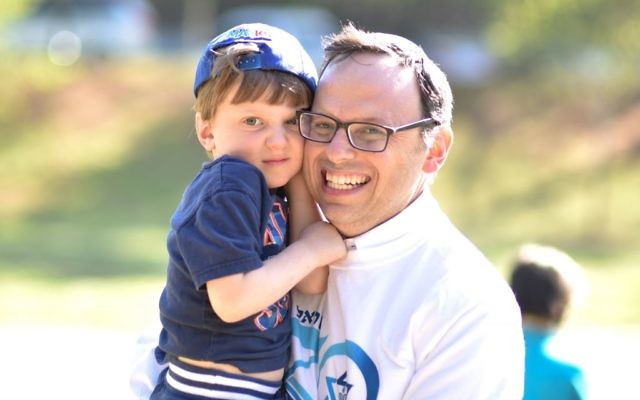
The increased use of the words “tikkun olam” can be charted by Google Books’ N-Gram Viewer, which counts the usage of letter and word combinations, using Google’s database of 500 billion words from nearly 5.2 million digitized books published between 1500 and 2008.
From relatively little usage in the 1940s-1960s, mentions increased in the 1970s, grew in the 1980s and more so in the 1990s, and continued to climb through the first decade of this century.
“It is a term that until very recently was used in a different context. It’s only a modern usage that it has been used toward social justice,” said Starr. “It doesn’t mean social justice is wrong. It’s just not the original.”
Brandeis University Professor Jonathan Krasner has cited three groups responsible for popularizing this ancient concept: Theologians post-Holocaust who found it “a useful concept for re-imagining the covenantal relationship between humans and God;” 1960s educators, who “when confronted by the counterculture of the youth, gravitated to Tikkun Olam, with its idealistic connotations,” and lastly, social activists and havurah members concerned about what they perceived as the conservative and inward-oriented drift of the American Jewish community.”
The modern interpretation of tikkun olam has become an umbrella under which other Jewish values – tzedakah (charity), g’milut hasadim (acts of loving kindness), and tzedek (justice) – can be found.
This tikkun olam plays an important role at numerous congregations in Atlanta.
For example, at The Temple, a Reform congregation, the Rothschild Social Justice Institute lists 10 issues on which it “seeks to affect positive change”: sex trafficking of minors, the environment and climate change, gun safety, poverty and homelessness, LGBTQ inclusivity and equality, Jewish-Muslim relations, racial justice, women’s rights, public education, and refugee resettlement.
Social justice has been at the heart of Reconstructionist Judaism since its founding some 80 years ago and remains so at Congregation Bet Haverim, founded 32 years ago by gay and lesbian Jews, but which today has a majority “straight” membership.
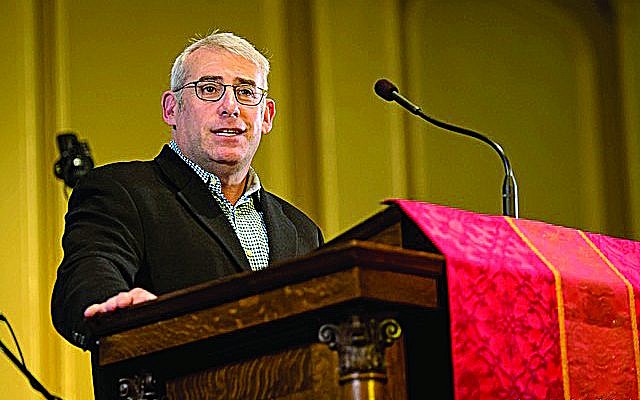
Rabbi Joshua Lesser, its spiritual leader for nearly 20 years, is active on issues that range from discrimination against the LGBTQ community to race relations to the welfare of farmworkers in Florida.
Tikkun olam “has become a Jewish expression for secular Jews. For what I will call religious progressive Jews, like myself, it is a main pillar, just as the rabbis of the Talmud said, [on three things the world stands] on Torah, on worship, on deeds of loving kindness,” Lesser said. “I’d say we’ve broadened deeds of loving kindness. . . In some communities it’s the main pillar. . . It’s more broadly defined than how the Orthodox community might define it and it’s how progressive Jews use their sense of faith to be political in the world.”

Rabbi Pamela Gottfried is the Dean of Jewish Studies and teaches Biblical and rabbinic texts at the Weber School, Atlanta’s trans-denominational Jewish high school.
“I strive to help my students appreciate the many ways Jewish literature and laws are relevant and applicable to our lives in 21st century metro Atlanta,” said Gottfried. “Later this semester, when we study Genesis 13-19 in my 9th grade class, we’ll read the story of Avram’s migration to Canaan with Sarai and Lot, and Lot’s flight from Sodom with his wife, and consider their perspectives as immigrants and refugees. We’ll examine Abraham’s conversation with God and discuss how one advocates for the safety of others, and why we are more motivated to help our blood relatives, even family with whom we are not necessarily close, than strangers.
“I may not explicitly frame these classroom conversations as “teaching tikkun olam,” but my goal is for students to make connections to our sacred texts and to figure out how to live meaningful lives grounded in Jewish values, which includes tikkun olam,” she said.
There are those for whom the original meaning remains the true meaning.
“Orthodox Jews don’t perform tikkun olam, they yearn for it,” Rabbi Binyomin Friedman of Congregation Ariel, said. “It is certainly not a commandment. It is a vision.”
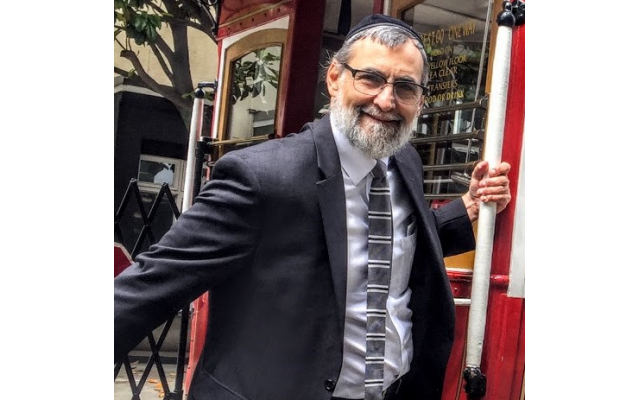
“The Jewish people as a whole are a nation. We may live in and participate as citizens of other nations but we also cherish our Jewish nationhood. Our national aspiration is that the entire world will one day be perfected when all come to recognize that G-d is King. This is something that G-d will bring about but he will use the Jewish people as the instrument to do that. Our duty is to live devout lives, model our belief in G-d to the world and steadfastly believe that the day when G-d will be accepted by all is at hand. When everyone has accepted the sovereignty of G-d there will be no more war, no more hate, the rivers will be clean and the wolf will lie with the lamb,” Friedman said.
When Rabbi Ari Sollish of Chabad Intown discusses tikkun olam, he speaks enthusiastically about Isaac Luria, the 16th Century C.E. rabbi and mystic who lived in Safed, in what now is Israel and then was part of Ottomon Syria.
Luria, also referred to as the Arizal (in Hebrew, “The holy lion, of blessed memory), is considered the father of modern Kabbalah and his works are referred to as Lurianic Kaballah.
“Before this world, before this reality, God created another reality. And in that reality the light was too great for the vessels. The vessels shattered and the shards, the broken pieces of those vessels, formed the physical reality of this world. So, it’s from that destruction that this world emerges,” Sollish said. “The other world had a lot of light and the vessels were small. This world has big vessels and a small amount of light.”
“The Arizal says that our job is to find these sparks of Godliness and holiness from this previously existing spiritual reality, where the light was so big that the container couldn’t hold it. . . These sparks are found in earthly things and physical reality and our job, the job of every human being, of every soul, is to seek out sparks and to elevate them back to the source, to God,” Sollish continued.
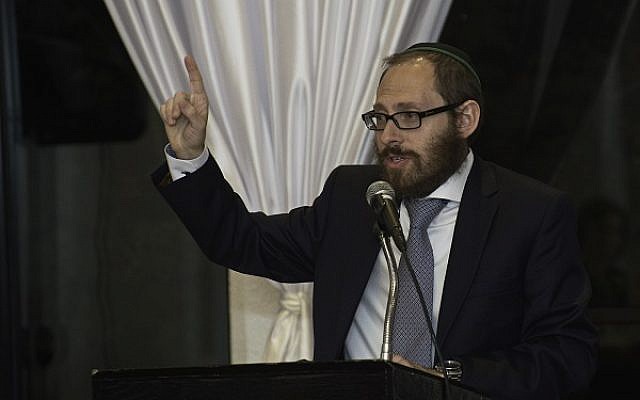
Sollish sees tikkun olam as embracing both Jewish ritual and activism.
“I don’t see it as either-or . . . but there certainly is a spiritual component. The whole thing is spiritual. People want to do good in the world, and they want to make the world a better place, that’s a very Jewish thing,” he said.
“So when you treat the world in an ethical fashion, I do think that’s part of tikkun olam. When you treat your neighbor in an ethical fashion, that’s part of tikkun olam. When you wrap teffilin, part of tikkun olam. Eat matzah, part of tikkun olam,” he said.
“If somebody says, we no longer need to do a mitzvah, to study the Torah, because we’re “saving the whales,” I would say, these things are good and THESE things are good. We need to do these things AND those things. I don’t see it as an either/or thing.”
Blumenthal similarly rejects the either/or proposition.
“Tikkun olam is one of many value-concepts in rabbinic Judaism and, yes, modern Jewish thinking has exaggerated the importance of tikkun olam in that whole picture of rabbinic values. Thus, which is more important study or prayer, good deeds or study, etc. When one picks only one value and makes it the MOST important value, one distorts the system – no matter which value one picks,” he said.
Paul Root Wolpe, director of the Emory Ethics Center, finds problematic tikkun olam not grounded in religious belief.
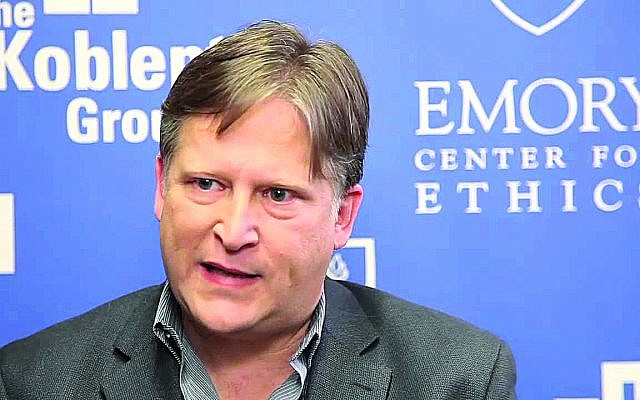
“When a decision about Judaism comes from a knowledge of the tradition and a positive choice to dedicate oneself to that aspect of the tradition, it is a choice with integrity and purpose. When it becomes a default position because it fits with your already existing knowledge and proclivities and is easier than actually learning anything, I have much more trouble with it,” said Wolpe, who also holds the Raymond F. Schinazi Distinguished Research Chair in Jewish Bioethics. “That being said, for many Jews today, tikkun olam can be a gateway into Judaism, a place to begin their exploration. For that reason, I think the emphasis is important in certain circles, as it fits the zeitgeist of American liberal Judaism, and can bring Jews together over important social action and be the conduit to a deeper dive into Jewish thought.
“But if it ends there – if the actions are no different than, say, volunteering at a soup kitchen without the concept of tikkun olam – then what do we need the idea for anyway? Simply as a motivator? That is fine, but it is not enough. For those immersed in Judaism and Jewish thought, tikkun olam can be a focal point to bring Judaism into action,” he continued.
Sollish asked a visitor, “Should the fellow who’s saving the whales also put a mezzuzah on the door? Of course. Should the fellow has a mezzuzah on every single door, even in the walk-in closets of the bedroom, the rooms that no one lives in, should that person also care about not harming the environment? Absolutely. Can we weigh one as being greater than the other?”
Sollish answered his own question: “God is found in more than one place … God is, indeed, everywhere. It’s not like God is only found in the shul.”




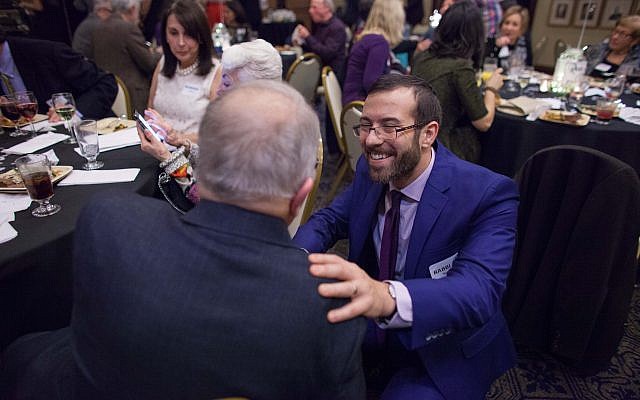
comments